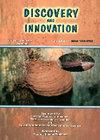Multivariable functions of savings and credit in Menoua, West Cameroon
引用次数: 1
Abstract
This survey attempts to scientifically examine Menoua Rural Populations’ preoccupations, in the West of Cameroon, as far as the magnitude of supply of savings and the application for loans are concerned. Considering Highly-varied available financial institutions in the area, potential customers weigh the optimum credibility likely to catalyze their choice, on the basis of the following assets: topmost security of deposits, confidentiality, free withdrawal of desired amounts when needs arise and facilitated loans lending process. On the basis of data meticulously collected from the field and scientifically analyzed through two econometric models, namely the supply of savings and the application for loans, a close look at the socio-economic and demographic features, as regards a comparative dissection of facts, releases a genuine stratification of financial sectors, where transactions are commonly carried out. Results obtained show that in the rural area, the fragmentation of the financial market and its extension to other socio-economic sectors enable each peasant to fully play his or her role, in the integration, on the process of comparative advantages. Menoua Rural Area in the West of Cameroon, -thanks to its dynamic spirit of Creativity and ingenuity, -has succeeded in forging a genuine and a really secure crisis exit! The “NJANGI” or “TONTINE” System initiative has been developed, modernized and successfully transplanted as its ethics requires, on the entire Menoua geographical area and even beyond it, all over Cameroon. Although it is an apparently informal Financial Sector, ‘NJANGI” or “TONTINE” Groups are preferred to Modern Financial System, because they strictly respect the norms of local traditions. Peasants, at the time when they have to carry out their financial transactions, ought to make a really mature choice, according to their priorities and future achievements, aimed at, as targets. From this analysis, the conclusion drawn is that, the Menoua Rural World, West Cameroon, in the end, use both Formal and Informal Financial Sectors. The movement of cash swings from the Modern Financial Sector to the Informal one, and vice versa, in specific circumstances, irrespective of the strata of populations, be they an educated folk or not. The supply of savings and applications for loans ostensibly change, depending on transactions. Any of both systems therefore has an intrinsic value! But, on top of these well recognized Channels, some peasants prefer saving rather in nature. Then, a clear disequilibrium is noticed between customers of formal financial institutions and those of informal financial ones.喀麦隆西部Menoua省储蓄和信贷的多变量函数
这项调查试图科学地审查喀麦隆西部Menoua农村人口的关切,就储蓄供应和贷款申请的规模而言。考虑到该地区各种各样的金融机构,潜在客户在以下资产的基础上权衡最有可能促成他们选择的最佳信誉:最高的存款安全性、保密性、在需要时自由提取所需金额以及便利的贷款流程。根据从实地精心收集的数据,并通过储蓄供应和贷款申请这两种计量经济模型进行科学分析,仔细观察社会经济和人口特征,就事实的比较剖析而言,可以对通常进行交易的金融部门进行真正的分层。所得结果表明,在农村地区,金融市场的碎片化及其向其他社会经济部门的延伸,使每个农民在一体化过程中充分发挥自己在比较优势过程中的作用。喀麦隆西部的Menoua农村地区,由于其充满活力的创造力和独创性,成功地建立了一个真正安全的危机出口!“NJANGI”或“TONTINE”系统倡议已按照其伦理要求在整个Menoua地理区域,甚至在其以外的喀麦隆各地得到发展、现代化和成功移植。虽然这显然是一个非正式的金融部门,但“NJANGI”或“TONTINE”集团比现代金融系统更受欢迎,因为它们严格尊重当地传统的规范。农民在进行金融交易的时候,应该根据他们的优先事项和未来的成就,目标,做出一个真正成熟的选择。从这一分析中得出的结论是,喀麦隆西部Menoua农村世界最终同时使用了正式和非正式金融部门。在特定情况下,现金从现代金融部门流向非正式金融部门,反之亦然,无论人口阶层如何,无论他们是否受过教育。储蓄的供给和贷款的申请表面上是变化的,这取决于交易。因此,这两种系统中的任何一种都具有内在价值!但是,除了这些公认的渠道之外,有些农民更喜欢储蓄,而不是自然储蓄。结果表明,正规金融机构的客户与非正规金融机构的客户之间存在明显的不均衡。
本文章由计算机程序翻译,如有差异,请以英文原文为准。
求助全文
约1分钟内获得全文
求助全文

 求助内容:
求助内容: 应助结果提醒方式:
应助结果提醒方式:


